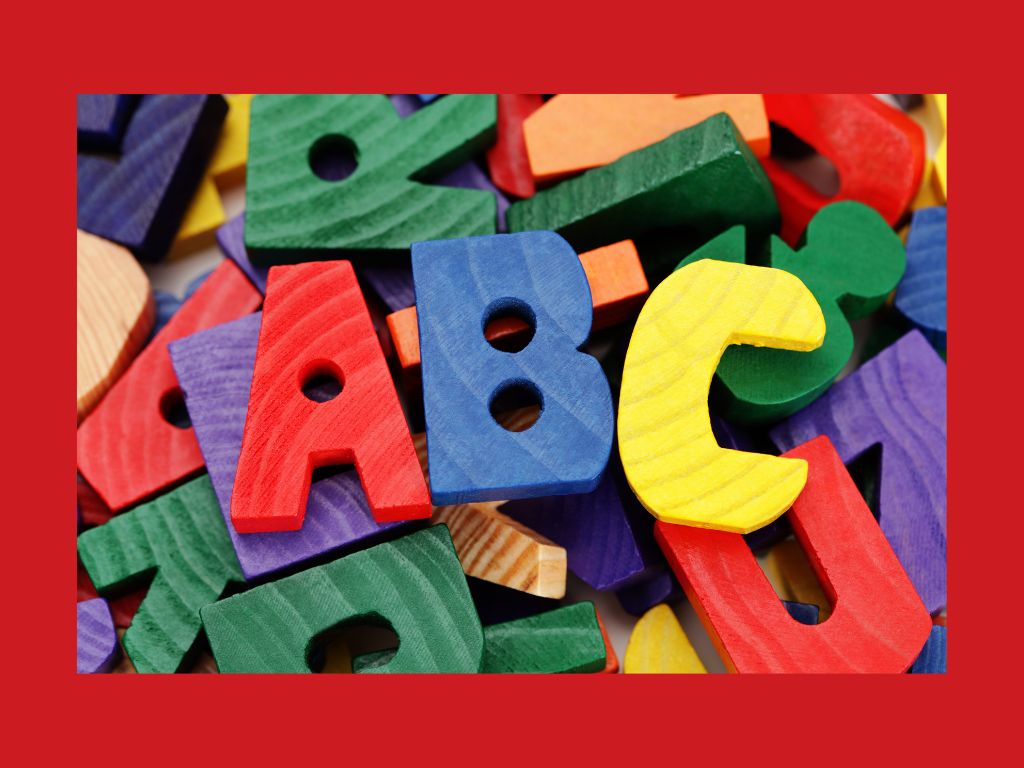
One thing I’ve found when people are learning to partner dance is they want to do everything amazingly well straight away. They’ve seen the performances on ‘Strictly’ and the brilliant dancers on YouTube who make it look so effortless, and they want to fast forward to dancing like that.
Everyone thinks about the process of learning to dance very differently. For me, I think of the learning of dance as being exactly the same as learning language and communication skills. When you’re little, you don’t go from not being able to talk to suddenly having clever conversations. You start with the basics and then you advance over time; first you have to master the alphabet, then you form words, then basic sentences, and eventually, you master the clever conversations.
Start with the building blocks-learn the alphabet
So for example when a brand new beginner comes to learn to partner dance, we would normally teach them the alphabet; those basic moves and steps like the rock step, walking, or swinging your arms. Just like when learning to talk, before we put words or sentences together and learn higher level skills, we need to learn the basic foundations.
Don’t expect to run (or dance) before you can walk-form the words
When our dancers are right at the beginning of their dance journey, we encourage them to manage their expectations. It’s important that they don’t expect to be able to lead and follow or display those higher level skills just yet. Using the learning to talk analogy, when we learn the alphabet, it doesn’t teach us how to have a coherent conversation or join words together. We need to practise the alphabet then eventually form words. So when learning to partner dance, you need to practise the basics on your own, whenever you get the chance. Repetition and patience is the key.
Forget the clever conversations-begin with short sentences
If you’re doing a 6-week Lindy Jazz course, by week 3 you might be at the point where a few moves are coming together. But we will always encourage you not to stray from getting the basics right and expecting to master higher level skills too soon. This is the same as expecting to go from learning a few words here and there to having a clever conversation. This puts far too much pressure on you way too soon and it can take the fun out of learning to dance. Be patient; the clever conversations will come. Focus on mastering the basics, repetition, and having fun. The clever bits will come in time.
Dance is not performance, it’s communication
That’s why we run the 6-week courses. Sometimes when people drop into a single class as a one-off, they expect to be able to master things straight away. Others may see dance as merely a performance, like an actor learning a new language so they can perform in a French play. This is because we see so much dance on social media and television, it’s easy to think that learning to dance is a means to an end. The end goal being a performance.
Here at Lindy Jazz, we think of dance as learning a skill and using that skill to communicate. We don’t teach our dancers to memorise choreography, we teach them the alphabet, the words, the sentences, and the structure so they have the freedom to express themselves and communicate with those who are on the same wavelength and speak the same language.
Learn to speak the language of dance-the right way
You can’t learn a language by reading a book or watching videos. You have to speak it and be immersed in it. That’s why we create a friendly and relaxing environment for everyone to learn a few dance steps, stumble, feel uncoordinated, and make mistakes along the way. Just like when you’re learning a language. It takes time to be fluent, and mistakes and feedback are all part of the learning process.
So book a place on our next 6-week course and learn the language of dance the right way. Join us for fun, relaxing, and enjoyable experience that will help you build some solid foundations for the next steps on your dance journey.
Excellent, Joo-Lee
Two main takeaways: 1) We are learning a language because dance is communication. 2) Remember we are not learning to perform. This lifts a lot of self-imposed pressure.
Very helpful advice
Thank you
Great stuff!
I love the language of dance!
Learning with you “Lindy-Lot” is a lot of FUN.
Many thanks to everyone for your kindness and patience. At the end of last week’s class I felt myself starting to relax more with people. 😊🌈 I am looking forward to to-night!